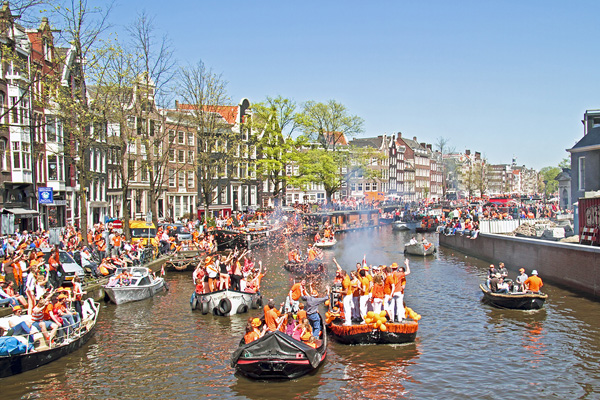Public Transportation in Amsterdam
Summary: Mastering the public transportation system in Amsterdam is a crucial aspect of adapting to life there. This article provides a detailed overview of the available local transit options.

Amsterdam, the capital city of the Netherlands, is known for its extensive and efficient public transportation system. The city offers a variety of public transportation options including trams, buses, ferries, and the metro, all operated by Gemeentelijk Vervoerbedrijf (GVB). The city's compact size and flat terrain also make it ideal for cycling, which is a popular mode of transport among locals. With such a comprehensive public transportation system, it is entirely possible for an expat living in Amsterdam to comfortably live without a car.
Trams
The tram system in Amsterdam is one of the largest in Europe, with 16 lines crisscrossing the city. Trams are a convenient and popular way to get around, especially in the city center where they have priority over other traffic. They are safe to use at any time of day or night, and are generally reliable and punctual. A single journey costs €3.20, but there are also various travel cards available that offer unlimited travel for a certain period of time. The tram network covers most of the city, making it easy to get to most places.
Buses
Buses in Amsterdam complement the tram and metro services, covering areas that are not reached by these modes of transport. They are particularly useful for reaching destinations outside the city center. Night buses operate after the trams and metros have stopped running, ensuring that public transportation is available 24/7. The cost of a bus journey is the same as a tram journey, and the same tickets can be used on both. Buses are safe and reliable, although they can be slower than trams or the metro due to traffic.
Ferries
Amsterdam's ferries provide a unique and enjoyable way to get around the city. They operate across the IJ river, connecting the city center with the northern part of Amsterdam. The ferries are free to use and run frequently, making them a convenient option for both locals and tourists. They are also safe to use, with well-lit terminals and onboard security. The ferries offer a great way to see the city from a different perspective, and are a popular choice for cyclists as bikes can be taken on board for free.
Metro
The metro system in Amsterdam is relatively small compared to other cities, but it is a fast and efficient way to travel longer distances. There are four metro lines that connect the city center with the suburbs. The metro is safe to use, with CCTV cameras and security staff present at all stations. A single journey costs €3.20, the same as a tram or bus journey. The metro runs from around 6am until midnight, with night buses available when the metro is not running.
Cycling
Cycling is an integral part of Amsterdam's culture, and is often the quickest and most convenient way to get around. The city is extremely bike-friendly, with dedicated bike lanes and bike parking facilities throughout the city. Bikes can be rented from numerous locations, and there are also guided bike tours available. Cycling in Amsterdam is safe, with motorists used to sharing the road with cyclists. However, bike theft is a common problem, so it's important to always lock your bike securely.
In conclusion, Amsterdam's public transportation system is comprehensive, reliable, and safe. Whether you choose to travel by tram, bus, ferry, metro, or bike, you can easily get where you need to go without a car.
About the Author
 Joshua Wood, LPC joined Expat Exchange in 2000 and serves as one of its Co-Presidents. He is also one of the Founders of Digital Nomad Exchange. Prior to Expat Exchange, Joshua worked for NBC Cable (MSNBC and CNBC
Primetime). Joshua has a BA from Syracuse and a Master's in Clinical and Counseling Psychology from Fairleigh Dickinson University. Mr. Wood is also a licensed counselor and psychotherapist.
Joshua Wood, LPC joined Expat Exchange in 2000 and serves as one of its Co-Presidents. He is also one of the Founders of Digital Nomad Exchange. Prior to Expat Exchange, Joshua worked for NBC Cable (MSNBC and CNBC
Primetime). Joshua has a BA from Syracuse and a Master's in Clinical and Counseling Psychology from Fairleigh Dickinson University. Mr. Wood is also a licensed counselor and psychotherapist.
Some of Joshua's articles include Pros and Cons of Living in Portugal, 10 Best Places to Live in Ireland and Pros and Cons of Living in Uruguay. Connect with Joshua on LinkedIn.
Additional Information:
- Best International Schools and Bilingual Schools in Amsterdam
- 7 Weekend Getaways for Digital Nomads Living in Amsterdam
- Best Bookstores and Libraries in Amsterdam
- Fun Classes for Expats Living in Amsterdam
- Public Transportation in Amsterdam
- Best Markets in Amsterdam
- Retire in Amsterdam Guide
- 7 Tips for Living in Amsterdam
- Pros & Cons of Living in Amsterdam
- Tips for Expats Driving in Amsterdam
- Cost of Living in Amsterdam
- Health Care in Amsterdam
- Discovering the Best of Amsterdam
- 5 Tips for Living in Amsterdam
- Healthcare & Health Insurance in Netherlands
- Best Places to Live in Netherlands
- Real Estate in Netherlands
- Pros & Cons of Living in Netherlands
- 5 Tips for Tech Jobs in Amsterdam
- What It's Like Living in Amsterdam
- Pros and Cons of Living in Netherlands 2025
- 2025 Guide to Moving to Netherlands




